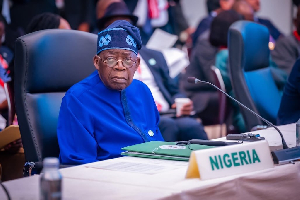Chief executive officers and other stakeholders have urged the Federal Government to implement policies that will provide an enabling environment for Nigerian businesses to thrive.
The stakeholders made this call at a conference themed “Business Unusual: Breaking Barriers”, which was held in Lagos.
The convener of the conference, a development strategist, Linda Uneze, noted that the conference, which was in its third edition, became imperative in order to address several factors that posed threats to businesses, especially in Nigeria; and equip business people with what they needed to do in order to attain set goals.
In his keynote address titled ‘Diversification of the Nigerian economy’, the Founder and Chief Executive of AA Holdings, Austin Avuru, said the government had failed at all levels in energising the private sector to operate at optimal capacity.
He noted that the failure of the Nigerian economy to live up to expectation had been down to inability to deploy the abundant human and natural resources at our disposal.
He said, “In the Nigerian case, we have people, albeit not at the level of education we want. We have natural resources in abundance. We have limited technology, but there is available technology to purchase. So, usually, good governance simply means organising your production capacity. That is, organising these people and natural resources to optimise growth. That is what it should be.”
He said poor infrastructure, education, healthcare and insecurity, all of which stem from the government’s ineptitude, had played a significant role in weakening the capacity of the business community.
The Deputy High Commissioner of British High Commission, Ben Llewellyn-Jones, also expressed his thoughts on how policymaking can help remodel the private sector for optimum performance.
During a panel session which was moderated by Arise TV Business Journalist, Rotus Oddiri, the British envoy said improved port operations would be critical to boosting the country’s economy.
Noting that closing Nigeria’s borders was not a good idea, Llewellyn-Jones said the incoming government has a “real opportunity” to build credibility and encourage local and foreign investments into the country.
Another member of the panel, Partner at Ernst & Young, Lola Esan, while speaking on local sourcing of raw materials, said looking inwards for Nigeria’s production needs would create more jobs, boost internally generated revenue and enhance innovation in the manufacturing sector.
The Corporate Relations Director and Company Secretary at Guinness Nigeria Plc, Rotimi OdusolaOdusola, who was also one of the panelists, harped on the role of small businesses in the economy and advised the government to pay close attention to the Micro, Small and Medium Enterprises
According to him, they are the engines of the economy and can provide inputs that the bigger businesses need.
He also lamented high energy costs incurred by manufacturers and advised the Federal Government to be consistent in its policymaking in order to provide clarity for critical business decisions.
The Managing Director at Azura Power West Africa Ltd, Edu Okeke, while also speaking during the panel session, noted that there was a need to diversify power to reduce reliance on fossil fuels and improve renewable energy.
He lamented that many Nigerians still do not have access to electricity.
The Chief Executive Officer of Transcorp Group, Owen Omogiafor, who delivered the second keynote address titled “Business resilience in turbulent times”, said businesses must expect challenges and disruptions, and that organisations who desire to navigate through times of crisis should have well defined crisis management plans in place
She said, “You must constantly transform. You must not get complacent. Do not ever think that because you are number one, that you will always be number one. Number one cannot go higher. If you move, where are you going? Down. So, when you are number one, everybody that is competing is looking at you.”
Rear Admiral Robert Ezekobe, who presented an address on ‘Security as a yardstick of a country’s attractiveness for business’, noted that Nigeria was confronted by a plethora of security challenges.
Business News of Friday, 5 May 2023
Source: www.punchng.com













